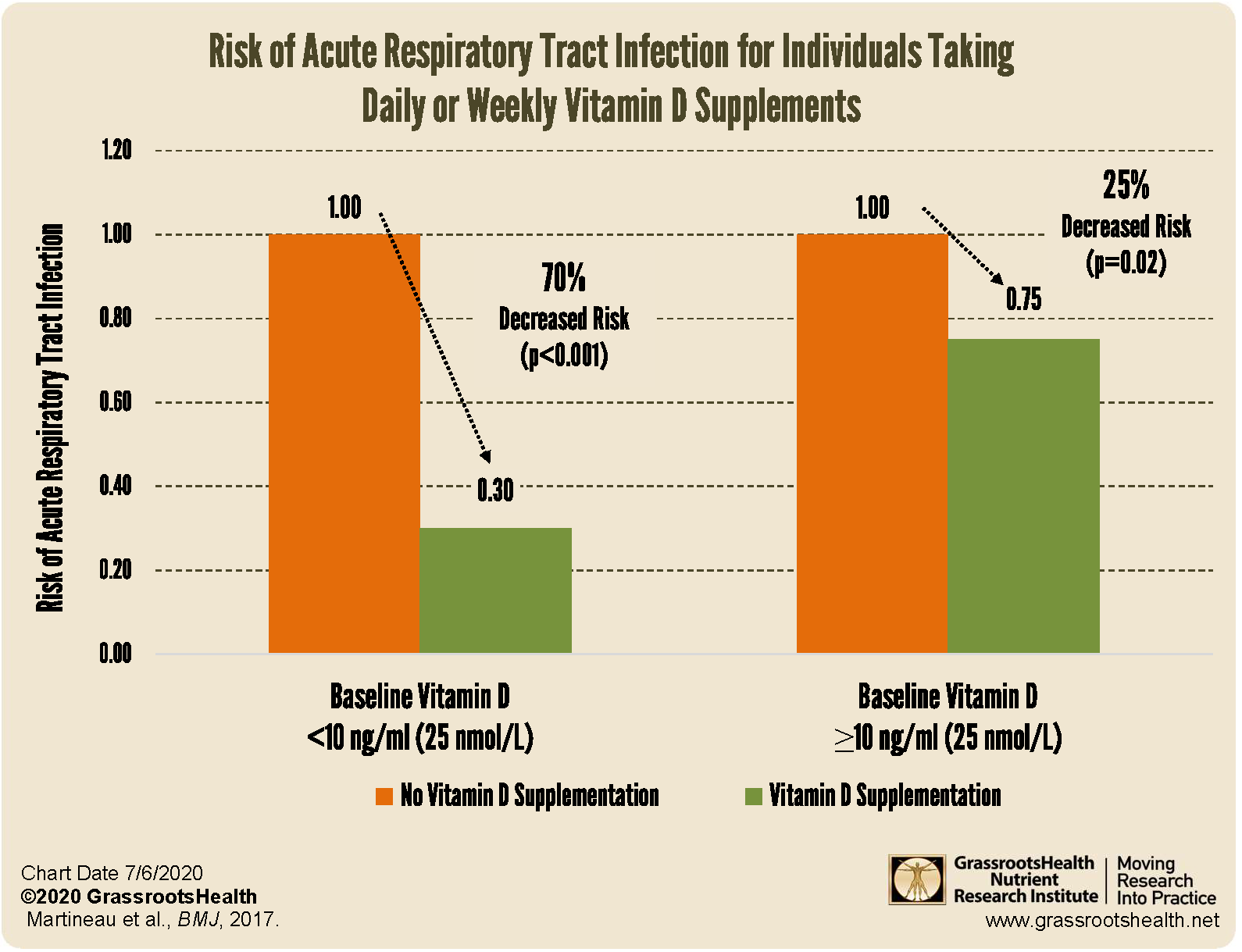Published on July 10, 2020
 Vitamin D is essential for immune health, due to its many roles in the immune response and in the regulation of the inflammatory response. Vitamin D deficiency has also become recognized as a risk factor for the infection and severity of the coronavirus causing COVID-19 symptoms. Is this news surprising? Not necessarily…
Vitamin D is essential for immune health, due to its many roles in the immune response and in the regulation of the inflammatory response. Vitamin D deficiency has also become recognized as a risk factor for the infection and severity of the coronavirus causing COVID-19 symptoms. Is this news surprising? Not necessarily…
In a meta-analysis published in 2017, Martineau et al. set out to assess the effect of vitamin D supplementation on the risk of acute respiratory tract infection (RTIs). The review included 25 randomized, double-blinded, placebo controlled trials (RCTs), with a total of 11,321 individual participants.
What did this study find?
This meta-analysis found that vitamin D supplementation resulted in a statistically significant reduction in risk of RTIs among all participants, with a 12% lower risk of acute RTIs for those supplementing with vitamin D versus those with no supplementation. Even greater protective effects were seen among those receiving daily or weekly vitamin D supplements without additional bolus doses of 30,000 IU or larger.
The greatest protective effect was seen among participants who received daily or weekly supplementation and whose starting vitamin D level was less than 10 ng/ml (25 nmol/L), with a 70% decreased risk of acute RTI with vitamin D supplementation compared to a 25% reduction for those whose starting levels were greater than 10 ng/ml.
A Healthy Immune Response Relies on Adequate Vitamin D!
The above results should be no surprise for those who are aware of the many roles vitamin D plays in overall health, and especially, our immune and inflammatory response. A panel of 48 international vitamin D scientists and researchers recommends a vitamin D level between 40-60 ng/ml (100-150 nmol/L) for optimal health performance. Is your vitamin D level within range? Test today to find out!
Are You Getting Enough Vitamin D to Help Yourself?
We’re in a time of great crisis that could be greatly affected by making sure you and everyone you know has a serum level of at least 40 ng/ml. Help us help you.
Do you know what your vitamin D level is? Be sure to test today to find out, and take steps to keep it within a target of 40-60 ng/ml or 100-150 nmol/L! Give your immune system the nutrients it needs to support a healthy you and protect yourself from unnecessary diseases.
Through GrassrootsHealth Nutrient Research Institute, you can also test your essential elements magnesium, copper, zinc and selenium, toxins such as lead, mercury and cadmium, as well as your omega-3 levels, inflammation levels and thyroid stimulating hormone (TSH) level. Find out your levels today! Log on to the test selection page (click the link below) to get your tests and see for yourself if your levels can be improved.
Make sure you track your results before and after, about every 6 months!
How can I track my nutrient intake and levels over time?
To help you track your supplement use and nutrient levels, GrassrootsHealth has created the Personal Health Nutrient Decision System called
For each specific supplement, you can track what days you take it, how much, and many other details. This will help you know your true supplemental intake and what patterns of use work for you to reach and maintain optimum nutrient levels. Check it out today!








